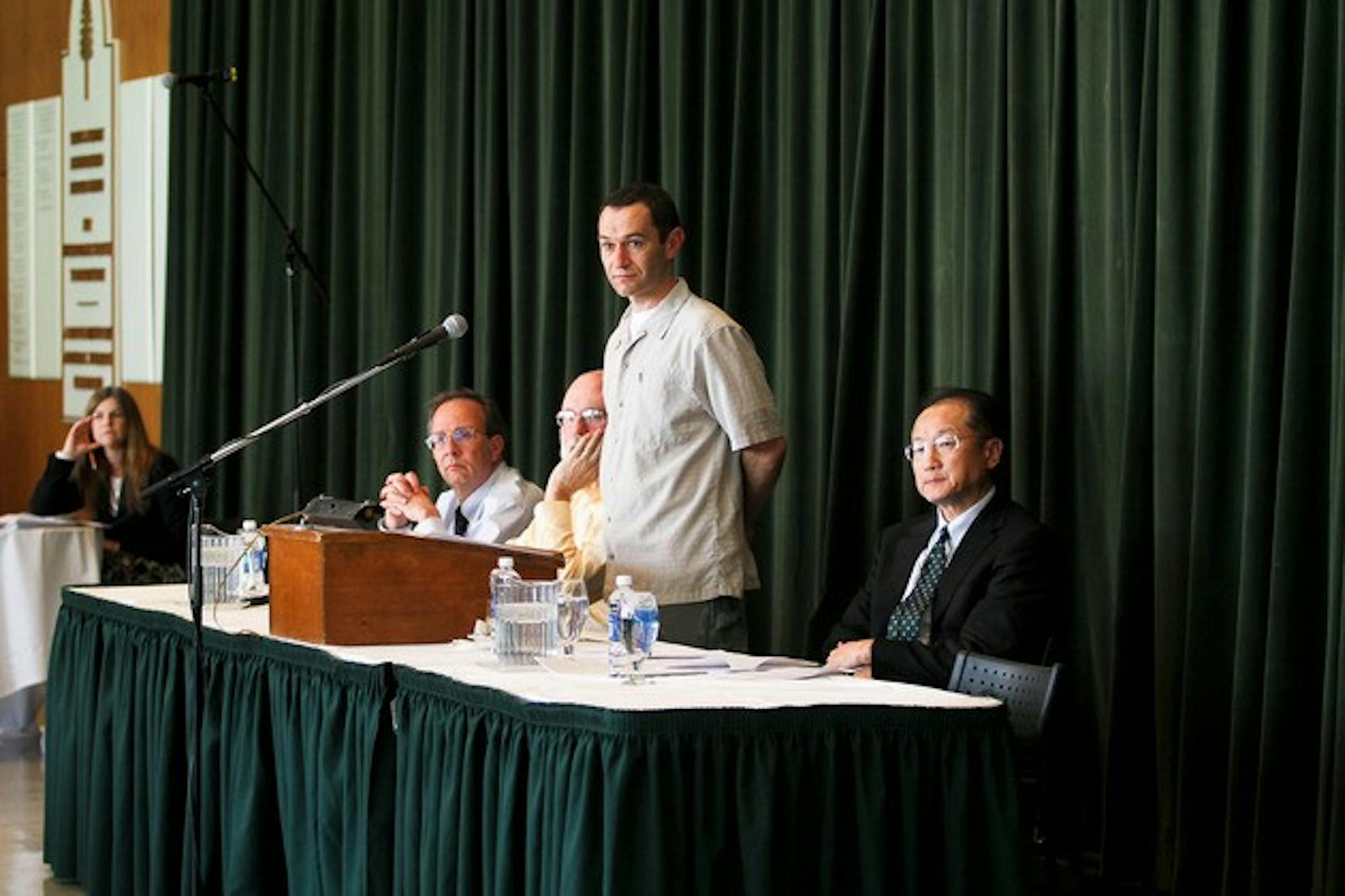The calendar change was primarily motivated by the difficulty of having students leave campus right before the final examination period, Dean of the Faculty Michael Mastanduno said in an interview with The Dartmouth.
"The end of Fall term always gets interrupted by shortened weeks before finals, and it is hard for faculty to maintain continuity," Mastanduno said. "The idea was to create consistency before the holidays and make it through the whole term before going away."
Many students leave campus early for Thanksgiving break and lose the trajectory of their classes, according to philosophy professor Samuel Levey, who chairs the Committee on Instruction, which addresses concerns raised by faculty members.
"The break creates tremendous disruption that degrades the quality for everybody, and students come back exhausted," Levey said.
The calendar change will also accommodate students who live farther away because they will no longer have to make an additional trip home, religion department chair Susan Ackerman, who serves on the Faculty Coordinating Committee, said in an interview with The Dartmouth.
"Plane tickets are becoming increasingly more expensive, and you're asking families who are already being pushed financially to take an even greater financial burden," she said.
The longer break between the Fall and Winter terms which will last from late November to early January will create off-campus work opportunities for students, Levey said.
"It can be a huge advantage for students looking to do job shadows or abbreviated internships," he said. "Since students are at home longer, they can think about how to program their time, maybe more time for job or graduate school applications."
Faculty members are planning to develop courses and programs for students who choose to remain on campus during the six-week interim, Ackerman said.
"For many faculty, there is a profound hope that we could do that," she said. "We don't know what [the potential courses] would look like yet, but we're intrigued by the fact that we can open up the time [over the longer break ] to work with students."
Ackerman, who teaches a course on ancient Egyptian religion, said that it would be "fantastic" to take students to Egypt for two weeks over the break.
Faculty members hope that potential programs will develop naturally as professors become more comfortable with the new academic calendar, Mastanduno said.
"The idea is that opportunities would emerge organically over the next several years," Mastanduno said. "Faculty and administrators are open to all kinds of possibilities without having in mind any specific programs at this point."
The calendar change will not significantly affect the College's budget, Mastanduno said.
"The overwhelming evidence is that it would neither save a great deal or cost a great deal," Mastanduno said. "We will find out in the first few years if there are hidden costs or benefits, but this was not something that was done primarily for financial reasons it was driven more by educational concerns."
The deadline for professors to submit grades will also be extended for Fall term to prevent conflict with Thanksgiving weekend, and final exams will not be held on the Saturday before the holiday to accommodate a scheduled football game against Princeton University, Levey said.
Fall off-campus programs will continue to depend on partner universities and will not be impacted by the calendar change, Ackerman said. One drawback of the new calendar is reduced research time for faculty and students whose work depends on the interim between Summer and Fall terms, such as those conducting field biology and anthropology research, Levey said.
The term shift will also create an overlap between the final examinations of Summer term and the beginning of the Dartmouth Outing Club First-Year Trips, Ackerman said.
"The ramifications will be that students enrolled over the summer will not be able to lead those early trips," she said.
The Trips program will be able to adapt to the academic calendar change and ensure that the program remains strong, according to Trips Director Emily Unger '11.
"We will most likely begin Trips during sophomore Summer or condense them into a shorter period of time," Unger said in an email to The Dartmouth. "Of course this will cause some changes, but nothing we can't overcome and we will still be able to have an awesome program."
Portions of the Trips program that traditionally take place near the Green may be moved to a different venue near the Connecticut River so that students studying for finals are not disrupted by the noise, Ackerman said.
The length of First-Year Orientation will also change, but the proposal is unrelated to the academic calendar change, Levey said.
Staff writer Barbara Richards contributed to the reporting of this article.




